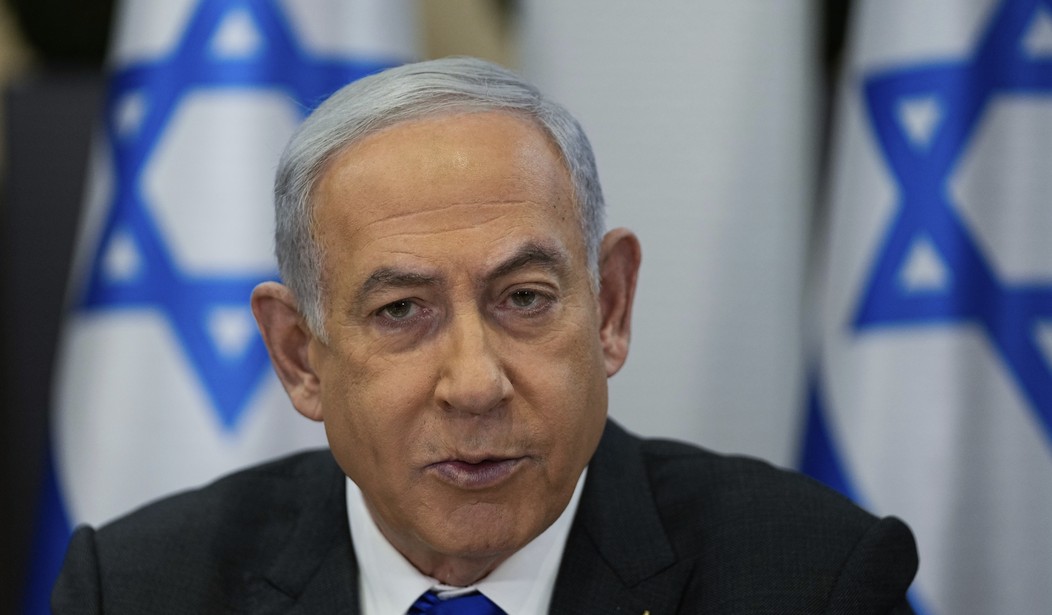Don't get too happy or concerned, depending on your sympathies, about this apparent softening of Benjamin Netanyahu's security stance. This is less of a concession than it is a challenge to the mediators, and especially to Egypt and the Biden administration in the US.
Having finally secured the Philadelphi Corridor and cut off Hamas routes of resupply, Netanyahu has remained adamant that the IDF will not withdraw. Just a short while ago, Netanyahu insisted that he could rethink this ... as soon as his critics demonstrate how any other arrangement will keep Hamas from re-establishing its lines of communication:
“We also agreed to begin discussions about a permanent ceasefire,” he said as he referenced a conversation that would take place during Phase One of the three-phase deal US President Joe Biden unveiled on May 31.
“The conditions that we shall have for a permanent ceasefire must include a situation where the Philadelphi Corridor cannot be perforated,” Netanyahu stated.
It’s unlikely, he said, that a realistic security plan exists that would prevent the smuggling of weapons under that critical buffer zone between Egypt and Gaza.
“Bring me anyone who will actually show us, not on paper, not in words, not in a slide, but on the ground, day after day after week, month after month, that they can actually prevent the recurrence of” weapons smuggling, he stated.If such a plan exists, he said, “we’re open to considering it. But I don’t see that happening… and until that happens, we’re there,” with the IDF protecting the Philadelphi Corridor.
Absent a firm plan to end Hamas' smuggling of fighters, weapons, and other materiel, any withdrawal from the Egypt-Gaza border would simply leave Hamas in charge and capable of rebuilding itself. Netanyahu's certainly correct about that, and Hamas has tacitly corroborated it by refusing to negotiate at all while the IDF controls that region. Without restoring their lines of communication, not only can Hamas not fight the IDF in the future but likely will lack the resources to remain in control of Gaza even if their leadership does survive.
And if that happens, it will take a full-scale war to seize that corridor all over again. Netanyahu made that point specifically in response to a question about why it took seven months for the IDF to seize it. That challenged Netanyahu's claim about the corridor being a key strategic goal, but Netanyahu argued that it took that long to shape the battleground, both militarily and diplomatically:
Netanyahu says the strategy that the political and military echelons approved, which had the IDF start in northern Gaza before making its way down, has led the IDF to killing 20,000 Hamas operatives and its senior commanders and to taking over Gaza City and the Shifa Hospital, which the terror group had used as a central command center.
He says his plan all along was to still enter Rafah and the Philadelphi Corridor.
“It took a while to do, but it was a progression of military advancement that produced the result. We’re there now,” the premier declares.
“[IF] we leave, we won’t come back. You know it. Everybody here knows it,” he claims, explaining his stance against withdrawing from the corridor. “Everybody in here knows what pressure will be brought on us so that we don’t come back.”
That's part of the answer. Israel adopted that strategic plan under pressure from the US to allow Rafah to remain unmolested as a city of refuge. That predictably led to both the Hamas senior leadership and the hostages to get moved to Rafah and Khan Younis, another refuge center. The IDF probably could have begun operations in Rafah as early as January even with this strategic plan in place, but the Biden administration put pressure on Netanyahu for months to avoid a battle that close to the border with Egypt.
If Israel withdraws and then has to return to secure the Philadelphi Corridor from Hamas again, it will take another months-long war to achieve the same goal. And it seems very unlikely that Israel's fair-weather friends will support any such effort, especially as a pre-emptive action. They've barely tolerated it in response to the worst atrocities targeting Jews since the Holocaust in a war that Hamas started -- again.
However, Netanyahu isn't the only voice in the government suggesting that the Philadelphi Corridor status could be negotiated. Strategic Affairs minister Ron Dermer told the media that such a move could be negotiated in later phases of a cease-fire:
“In phase one, Israel is going to stay on that line until we have a practical solution on the ground that can convince the people of Israel… that what happened on October 7 will not happen again, that Hamas will not rearm,” Dermer told the Bloomberg TV network. ...
“Phase one of this deal, what it calls for… is to have negotiations over the conditions over a permanent ceasefire,” said Dermer. “And once you’ve concluded those negotiations, while you’re in a ceasefire for phase one, in order to get to phase two and a permanent ceasefire, that’s when you can discuss long-term security arrangements on the Philadelphi Corridor.”
Dermer quasi-denied that Phase 2 discussions of the corridor had taken place in any meaningful way. Even so, Dermer's comments don't contradict Netanyahu's comments at the later press conference. If the mediators can present an alternative to an indefinite IDF occupation of the Philadelphi Corridor -- not just a hypothesis but a working plan that guarantees Israel's safety -- Netanyahu may be prepared to deal on it. But the bottom line is that Israel will not allow Hamas to rearm, full stop.
If Biden wants a deal, then he needs to deal with that reality.








Join the conversation as a VIP Member